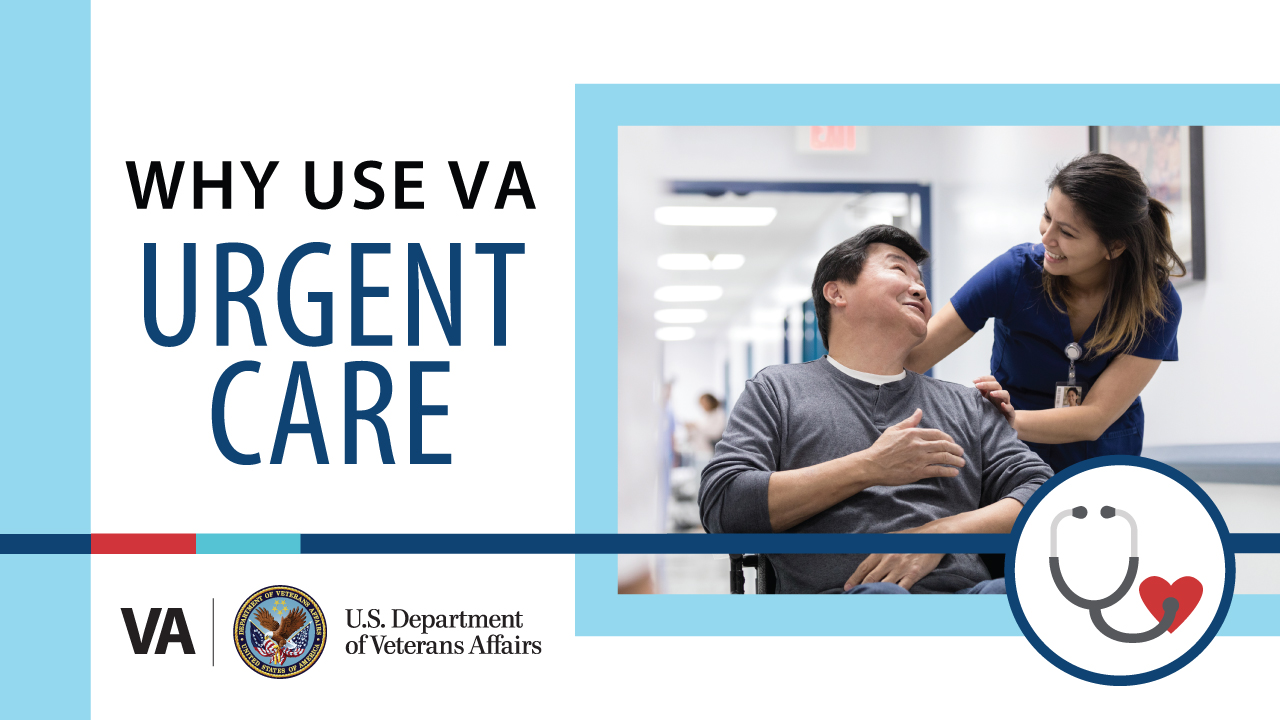Yes, you can go to urgent care for mental health concerns. Many urgent care centers can assist with crisis intervention and referrals.
Urgent care centers are becoming increasingly versatile in addressing various health concerns, including mental health emergencies. These facilities provide immediate, non-appointment care for situations that require prompt attention but may not be severe enough for an emergency room visit.
They often bridge the gap between primary care doctors who may not have immediate availability and the high-intensity environment of a hospital emergency department. For those experiencing acute episodes of mental health distress, such as panic attacks, severe anxiety, or other emotional crises, urgent care can offer a more accessible and cost-effective solution than traditional emergency services. Individuals need to know that, while urgent care can handle some mental health issues, they typically do not offer long-term mental health treatment and should be seen as a stepping stone to specialized care.
Mental Health Crises And Urgent Care
Mental health is as important as physical health. Knowing where to turn in moments of crisis can be life-saving. Urgent care centers provide immediate support for various health issues, including mental health emergencies. This post delves into urgent care’s crucial role during mental health crises.
Identifying A Mental Health Emergency
Mental health emergencies occur when someone’s behavior poses a danger to themselves or others. It’s crucial to recognize these signs:
- Threats of self-harm or suicide
- Extreme mood swings
- Violent behavior
- Inability to perform daily tasks
Sudden and severe changes in behavior warrant immediate attention. Urgent care centers can help stabilize the situation until further help is available.
Types Of Mental Health Crises
| Type of Crisis | Description |
|---|---|
| Panic Attacks | Intense fear with physical symptoms |
| Psychotic Episodes | Hallucinations or delusions, a break from reality |
| Severe Depression | Extreme melancholy, disinterest, and exhaustion |
| Mania | Excessively high energy, impaired judgment |
| Substance Abuse | Overuse or dependence on drugs or alcohol |
When these mental health crises arise, urgent care may provide immediate support. Medical professionals can assess the situation. They guide the next steps for care and safety.

Credit: www.healthline.com
Urgent Care Vs. Traditional Therapy
Mental health is crucial for overall well-being. Urgent care centers now provide mental health services which differ from traditional therapy. Below, let’s explore how urgent care can be a valuable resource.
Services Provided At Urgent Care
Many urgent care centers offer immediate mental health support. These services include:
- Crisis intervention for acute mental health episodes
- Assessment by qualified healthcare professionals
- Medication management and prescriptions, if needed
- Referrals to specialized mental health care providers
When To Choose Urgent Care Over Regular Sessions
Selecting urgent care for mental health depends on several factors:
| Urgent Care | Traditional Therapy |
|---|---|
| Immediate mental health concerns | Ongoing scheduled therapy sessions |
| Unable to wait for a therapist appointment | Regular consultation for mental well-being |
| Crisis needing urgent attention | Stable conditions benefiting from consistent care |
Choose urgent care for prompt support during a mental health crisis. For ongoing, structured mental health management, traditional therapy remains best.
Benefits Of Urgent Care For Mental Health
Prompt support is vital when mental health challenges arise. Urgent care centers provide a fast response to these crises. Let’s look at some key benefits.
Immediate Assistance
Urgent care centers offer immediate help. They don’t require appointments, and walk-ins are welcome. This ensures that individuals experiencing acute mental health issues can receive quick and timely care when they need it most.
Cost-effectiveness
Urgent care is often more affordable than hospital emergency rooms. It can provide efficient treatment without the high cost of traditional ER visits, making it a valuable option for patients seeking affordable mental health care.
Accessibility
Urgent care facilities are widely available and often have extended hours. This means patients can get mental health services on weekends or evenings, which is easier than waiting for a doctor’s appointment.
Preparing For An Urgent Care Visit
Preparing for an Urgent Care Visit: Seeking urgent care for mental health is a brave step. Mental health crises can arise unexpectedly and require prompt attention. Knowing what to bring and what to expect can ease the process and help you receive the support you need.
What To Bring
Before heading to urgent care, gather a few essential items:
- ID and Insurance Information: Bring your identification and any health insurance cards.
- Medical History: List past and current treatments, medications, and diagnoses.
- Emergency Contacts: Have phone numbers for family or friends who can help.
- Medication List: Include doses and frequency for each medicine you take.
- Any Legal Documents: Such as advance directives or guardianship papers.
Expectations During The Visit
Understanding what happens at urgent care can reduce stress.
- Check-in: Present your ID and explain your mental health concern.
- Assessment: A medical professional will assess your mental and physical state.
- Treatment Plan: They may offer immediate support and refer you to specialists.
- Follow-up Care: Expect advice on the next steps and follow-up treatment options.
Remember: Your safety is the top priority. Urgent care staff are trained to help and guide you toward the best care for your needs.
Common Mental Health Treatments At Urgent Care
When you think of urgent care, physical injuries might come to mind first. Yet, many people find quick help for mental health needs at these clinics, too. Urgent care offers immediate attention for mental health crises, often without the long wait associated with other mental health services. Here’s a closer look at what treatments you can find at urgent care for mental health.
Crisis Intervention
Immediate support is crucial during a mental health crisis. At urgent care, professionals can help stabilize patients. They provide a safe environment and intense care for those at risk of harming themselves or others. There might be a need to contact community resources or specialists for further assistance.
- Assessment of the patient’s current mental state
- De-escalation of the crisis for immediate safety
- Developing a short-term action plan
Medication Management
Managing medications is often a part of ongoing mental health care. Urgent care can assist in this aspect. Providers can evaluate the effectiveness of current medications, adjust dosages, or suggest new medications. A priority is ensuring the patient maintains stability until they can see a specialist.
| Service | Description |
|---|---|
| Evaluation of current prescriptions | Checking if current medications are working well |
| Dosage adjustments | Making changes to how much medication to take |
| New medication suggestions | Proposing alternative medications when necessary |

Credit: news.va.gov
Follow-up After Urgent Care
Visiting urgent care for mental health can be a critical step. Immediate needs are met, but follow-up care is vital. This ensures ongoing support. This phase extends recovery, connecting patients with the right resources for lasting health.
Referrals To Specialists
After urgent care, a referral to a specialist may come next. This paves the way to targeted help. Specialists dive deep into your unique situation. They craft specialized treatments. Urgent care teams connect you with psychiatrists, therapists, or counselors best suited to your needs.
- Psychiatrists for medication management
- Therapists for talk therapy
- Counselors for coping strategies
Developing A Long-term Care Plan
A long-term care plan is your roadmap to recovery. It includes many pieces that work together. Plans are personal and change as you grow. Plans can have therapy appointments, self-care routines, and check-ups.
| Component | Details |
|---|---|
| Therapy | Regular sessions for continued support |
| Medication | If needed, as prescribed |
| Self-Care | Activities to manage stress and promote wellness |
| Follow-Up Visits | Monitor progress and adjust plans |
Your care team helps you build this plan and ensures it aligns with your life. Each step is important and helps guide you toward a healthier, more stable tomorrow.
Limitations Of Mental Health Urgent Care
Urgent care centers provide immediate help and offer certain mental health services. Yet they have limits, and it’s important to understand these limits.
Scope Of Care
Urgent care centers vary in what they can do. Some manage mild mental health issues. They might not handle severe conditions. Centers often lack resources for complex mental health care.
Common services include:
- Crisis intervention for immediate danger
- Assessment of mental health conditions
- Medication management for known issues
Yet, these centers might not offer:
- In-depth therapy sessions
- Long-term treatment plans
- Specialized psychiatric care
Need For Specialized Treatment
Not all conditions can be treated in urgent care. Severe cases need specialist help. Urgent care cannot always give this level of support.
Specialized treatment might include:
- Long-term counseling
- Inpatient programs
- Custom therapy plans
These treatments are beyond the scope of urgent care. Specialist care may prevent crises and help patients manage their mental health better.
Alternatives When Urgent Care Isn’t Enough
Mental health crises sometimes need more care than urgent care can provide. Knowing other options is vital. They can give timely support.
Emergency Departments
In severe situations, emergency departments are equipped to handle mental health emergencies. They provide immediate attention and can stabilize patients. Quick care here can prevent the crisis from getting worse.
- 24/7 availability
- Access to mental health professionals
- Option for inpatient treatment if needed
Specialized Crisis Centers
Specialized crisis centers focus on mental health. They provide targeted care in a crisis. Centers can offer counseling and referrals to follow-up services.
| Service | Benefit |
|---|---|
| Dedicated staff | Expertise in mental health issues |
| Immediate counseling | Helps manage the crisis |
| Follow-up care planning | Ensures continued support |

Credit: www.healthline.com
Frequently Asked Questions On Can I Go To Urgent Care For Mental Health
What Can Urgent Care Do For Anxiety?
Urgent care can provide immediate assessments for anxiety and may prescribe medication or recommend follow-up treatment with a specialist. They also offer coping strategies for immediate relief.
What Is Considered A Psychiatric Emergency?
A psychiatric emergency is a severe mental health crisis requiring immediate attention. It can include suicidal thoughts, extreme panic, psychosis, or threats of violence to others. Access to professional care is crucial during such events.
What Counts A Mental Health Crisis?
A mental health crisis involves acute emotional distress potentially leading to harm to oneself or others, requiring immediate attention. Symptoms include severe anxiety, suicidal thoughts, psychosis, or unmanageable behavior.
What Is Considered A Behavioral Crisis?
A behavioral crisis occurs when someone exhibits extreme, uncontrollable behavior that poses a threat to themselves or others. This may require immediate intervention to ensure safety.
Conclusion
Seeking help is a brave and crucial step toward mental wellness. Urgent care centers provide an accessible option when immediate support is necessary. Remember, mental health is as important as physical health, and timely care can lead to a healthier, happier life.
Don’t hesitate to reach out.

Hello there! I’m here to assist you with health tips and tricks. Whether you’re looking to boost your energy, improve your sleep, or enhance your overall well-being, I’m here to guide you with strategies and frameworks that can empower you to make positive changes.
First and foremost, it’s important to understand that health is a holistic concept encompassing various aspects of physical, mental, and emotional well-being.

